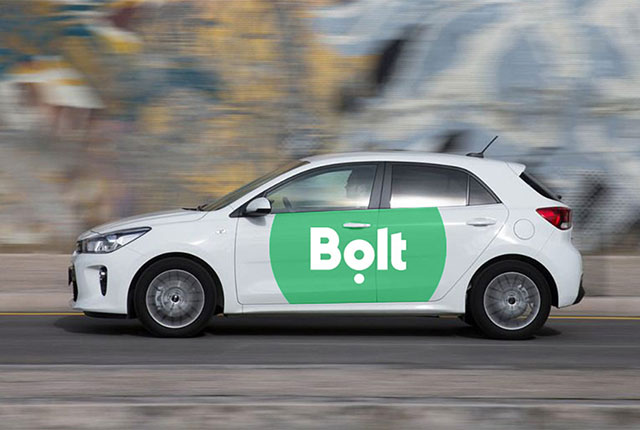
June 5, 2022
The Next Wave provides a futuristic analysis of BizTech and innovation in Africa. Subscribe here to get it directly in your inbox on Sundays at 3 PM (WAT).
Globally, as ride-hailing companies receive increased funding, expand into more countries, and gain prominence, passenger and driver safety has become a hot topic, especially in countries with high insecurity levels and loose law control. Since the ride-sharing platform boom began, with Uber’s launch in 2010, individuals have shared their sexual harassment stories, then in pockets and in unknown magnitudes; ride-sharing platforms could dodge critical questions that came to them about this. But a report about Uber US’s services, covering 2017 and 2018, revealed that the company received close to 6,000 allegations of serious sexual assault made by riders and drivers alike. While such data is unavailable for Africa, it wouldn’t be surprising for major ride-sharing platforms to have a similar problem on their hands while serving Africa’s over 48.6 million e-hailing customers.
Despite battling other problems on the continent, such as protests over an upward review of fares and requests for employee benefits (which chased Chinese ride-hailing behemoth, Didi, out of South Africa), ride-hailing companies in Africa are now being pressured to take security seriously. Over the years, Bolt has been accused of shrugging off claims of driver abuse, which ranges from sexual assaults to physical assaults, to turning riders over to policemen for extortion.
Partner Message

Europe’s biggest start-up and tech event is back! Viva Technology brings together start-ups, CEOs, investors, global tech actors, and well pronounced speakers. It will take place on June 15-18, in Paris. Find out more.
Ghost riders, drivers, platforms, and regulators
Last week, the Lagos state government in Nigeria warned residents to be “be wary of unlicensed e-hailing cab operators within the state as they pose security threats to the safety of lives and property”. The warning was majorly flagging the operations of two international ride-hailing platforms, Russian-founded inDriver and Armenia-based RIDA, who operate in the city without a licence. Even though InDriver has been operating in the city since 2019, this sudden advice from regulators is because of a spate of theft, kidnapping, violence, and harassment on ride-hailing platforms, including licensed ones like Bolt. In the unregulated ride-sharing space, after drivers get kicked out of licensed platforms like Uber and Bolt for violating platform rules, including harassment, they are still allowed to register a new account on the platform. This increases the likelihood of repeat offence. There should be a way to ensure harassers are screened out from registering on any other platforms. The Lagos state government has uncovered the identity of these unlicensed or “ghost” ride-hailing platforms, but its job is not yet done as it still has to deal with ghost drivers who have infiltrated the ranks of Bolt, a licensed ride-hailing company in Lagos.
A Rest of World investigation revealed that Bolt drivers were selling their verified accounts to unknown third parties or “ghost” riders. In Nigeria, this important verification is bypassed by drivers who sell their accounts to strangers who could be bad actors, which is very alarming, especially when you look at the general climate of insecurity in the country.
Partner Message

Intercom’s platform helps you engage and support your users through personalised chat-like experiences, with over 25,000 companies using it every single day. If you’re an early-stage, high-growth start-up, you can get access to its Early Stage Academy today at a 95% discount! Join the program today.
Globally, a key move in protecting the safety of passengers of ride-hailing platforms is driver registration, including a recommended biometric capturing that should be done and codified in one database to help with efficient criminal record checks.
In October 2021, Bolt and Uber drivers in Nigeria’s capital, Abuja, under the aegis of the Online Hackney Practitioners Association of Nigeria, said that 10 of their colleagues had been killed by carjackers since the beginning of that year. They blamed this on the fake identity of riders and accused ride-hailing platforms of not taking their concerns seriously.
A Foundation for Investigative Journalism (FIJ) report revealed that over half a dozen ride-hailing drivers have been maimed, killed, or kidnapped during trips. The report also shows a trend of poor response by ride-hailing companies to these security issues. Another ride-hailing driver association, Professional E-Hailing Drivers Association (PEDPA), wants ride-hailing platforms to carry the same checks they carry on drivers on riders too.

Protecting insecurity
While the lack of a stricter onboarding process is one explanation for this security problem, it doesn’t provide the full picture. Kidnapping is prevalent across Africa, where it is 5 times more likely for citizens to be kidnapped than anywhere else in the world.
In Nigeria, for example, amid a kidnapping epidemic, the Nigerian Senate passed a bill that will punish ransom payment with jail time and kidnappings that result in death with death sentences. The country’s mass abduction trend has increased over the years; in the first half of 2021 alone, 2,994 people were kidnapped compared to 484 recorded in 2017. According to data from the Armed Conflict Location and Event Data Project, these armed gangs have killed more than 2,600 civilians in 2021. Lagos, where almost all of these ride-hailing platforms have a presence, is also notorious for armed and traffic robbery. Between January and March of 2021, the police arrested 234 armed robbery suspects, and about 100 were traffic robbers.

Now that regulators seem to be paying attention to the activities of these ride-hailing companies is the best time to seek accountability. After widespread criticisms of its safety measures, Uber released its first and only sexual assault report in December 2019, but instead of pacifying its critics, its activities were met even with more scrutiny. Officials of the state of California, accounting for 21% of the complaints in the report, requested further details of the report including names of victims, witnesses, employees, and consultants that were involved in the report. Although, Uber had previously argued that complying with such requests to provide victims’ information without their consent would violate their privacy rights, it was overruled. California and Uber eventually reached a settlement in 2021, which will see Uber pay 9 million dollars to California, share the contested data under “unique identifiers” that will protect survivors’ identify, and report future sexual assault data.
A similar level of scrutiny on these ride-hailing platforms is important in Africa to ensure that they are serving their citizens in the best and safest conditions. Ensuring that these platforms are licensed is a good step, but beyond that, a strict review of the licensed ones’ safety measures must be carried out as well.
Partner Message

In 2020, Africa generated $27.97bn in online shopping revenue. Estimates show that the continent’s e-commerce revenue will keep increasing between 2021 and 2025. However, while African e-commerce is promising, there are some barriers. In our latest whitepaper with Klasha, we look at how to tackle these barriers and drive growth. Get your copy here.
From the Cabal
Collect Africa, a payment platform, wants to bring help African businesses to bring all their available payment methods into one dashboard, therefore enabling them to receive payments across all sales channels, and monitor and manage their businesses. Read more about its technology here.

Have a great week.
Thank you for reading The Next Wave. Please share today’s edition with your network on WhatsApp, Telegram and other platforms, and reply to this email to let us know what we can be better at.
Subscribe to our TC Daily Newsletter to receive all the technology and business stories you need each weekday at 7 AM (WAT).
Follow TechCabal on Twitter, Instagram, Facebook, and LinkedIn to stay engaged in our real-time conversations on tech and innovation in Africa.
Sultan Quadri, Staff Writer, TechCabal.






















